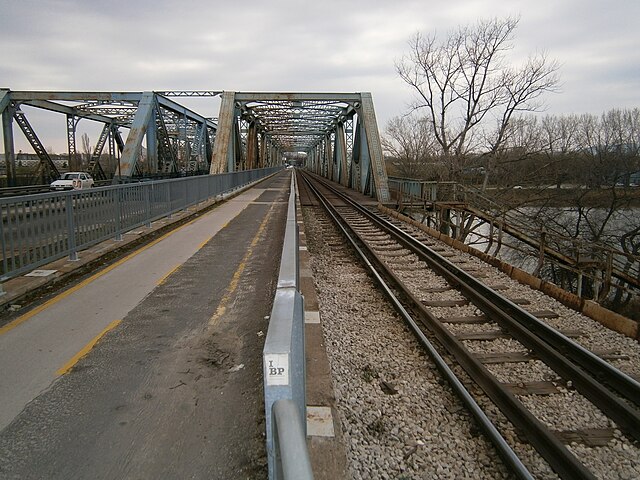Change language:
Container transport in Budapest may stop: How will this affect Hungarian economy?

Budapest’s rail freight network faces a major disruption as none of its five largest intermodal terminals will be accessible by rail for 16 days. The closure of rail tracks over Soroksári Road is necessary due to maintenance constraints, severely impacting transport in Budapest and national freight transport in general.
Closures
As G7 writes, transport in Budapest will be difficult, as none of the city’s five largest intermodal freight terminals will be accessible by rail for an extended period. This disruption, lasting 16 days, is akin to temporarily halting transport on the M1, M3, M5, and M7 motorways, critical routes for the Hungarian economy. The closures are necessary as the rail tracks over Soroksári Road must be shut in August due to restrictions imposed by the capital’s public road authority, which will not permit narrowing the road to two lanes until the winter school holidays.

Vital for transport in Budapest
The tracks connecting Ferencváros station with the Budapest–Belgrade line, crucial for access to four container terminals on Csepel Island and the Budapest Intermodal Logistics Centre (BILK), will be closed for several days due to maintenance on the Gubacsi Bridge. These intermodal terminals, crucial for transport in Budapest, have handled a tenth of Hungary‘s international freight traffic over the past decade, and are vital for the combined transport of containers and semi-trailers in international freight.
Much-needed renovation
The Gubacsi Bridge is in such poor condition that trains have been forced to operate at a slow pace with lightweight locomotives, incurring high costs. Despite a 2017 government decision to renovate the bridge with HUF 10 billion (EUR 25 million) and a recent allocation of HUF 44 billion (EUR 112 million) in EU funding, no full renovation is planned due to financial constraints. MÁV’s limited budget and the delay in the Budapest-Belgrade line construction exacerbate the situation, preventing easier access to the Budapest Intermodal Logistics Centre (BILK) from the south.

What effects will this have?
A few days of closure might not seem significant for transport in Budapest, but experts warn that delays in train services could last for months, increasing freight transport costs and reducing the competitiveness of Hungarian manufacturing companies. This could lead companies near the national borders to opt for terminals outside Hungary, resulting in lost traffic, reduced track access charges, and lower tax revenues for the under-resourced domestic rail infrastructure. However, the bridge over Soroksári Road is not in critical condition and could be completely overhauled once the Budapest–Belgrade line is finished in 2026.
Read also:
- Hungary and Romania sign agreement on new railway line
- Heatwave: Even MÁV doesn’t recommend you to travel by trains in Hungary!
Featured image: depositphotos.com








Thank you for all of your help. Your carrier became superb and really FAST. Many thank you for you type and green carrier. I even have already and could clearly hold to advise your offerings to others withinside the future.